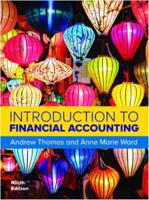Publisher's Synopsis
Excerpt from Uniform Crime Reports for the United States, 1973
The Crime Index offenses were selected because of the inherent seriousness of the criminal act and/or because the volume of such offenses caused a serious problem for law enforcement. In addition, consideration was given to the probability of society reporting specific criminal acts to law enforcement.
Since the Program's inception, 44 years ago, more and more law enforcement agencies have joined in this common effort to present data not only for the use of law enforcement, but also for the use of mayors; governors; legislators; the Congress of the United States; other Government officials at all levels; the academic and research communities; and other persons seriously concerned with the crime problem. Today almost city, county, and state law en forcement agencies contribute to Uniform Crime Reports. This is definitely a tribute to the professional nature of law enforcement agencies throughout the Nation. In addition, 22 states have implemented state Uniform Crime Report ing Programs. These state programs furnish data directly to the national Pro gram. It should be' emphasized that information collected in connection with the national Uniform Crime Reporting Program is a by-product or residual of the information which a law enforcement administrator needs for the daily operation of his agency. Every effort is made on a continuing basis to improve the overall quality of the information collected in connection with the Uniform Crime Reporting Program.
About the Publisher
Forgotten Books publishes hundreds of thousands of rare and classic books. Find more at www.forgottenbooks.com
This book is a reproduction of an important historical work. Forgotten Books uses state-of-the-art technology to digitally reconstruct the work, preserving the original format whilst repairing imperfections present in the aged copy. In rare cases, an imperfection in the original, such as a blemish or missing page, may be replicated in our edition. We do, however, repair the vast majority of imperfections successfully; any imperfections that remain are intentionally left to preserve the state of such historical works.










